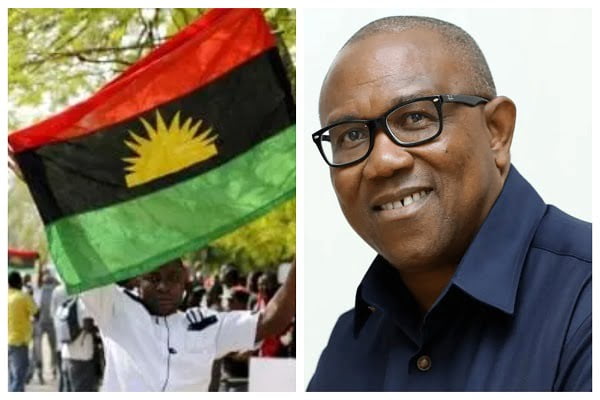The proscribed terror group, the Independent People of Biafra (IPOB), on Tuesday, struck a convoy carrying US citizens and Nigerian diplomats, killing at least four people, including two US mission workers.
The attack was staged hours after the Secretary of State of the USA, Anthony Blinken, announced a call with President-Elect Asiwaju Bola Ahmed Tinubu ahead of the latter’s swearing-in on May 29, underscoring possible intent of the group which has suspected ties with the candidate of the Labour Party, Peter Obi, in whose home state of Anambra the murder took place.
IPOB was unequivocal about its partisan support of Obi during the presidential contest and it infamously offered its extensive propaganda network to the candidate. It relentlessly pushed false reports targeted at Obi’s opponents and prevented campaigns deemed unfavourable to Obi from holding in any South Eastern state, a factor that contributed to Obi’s near-total victory in the region, despite failing to inspire in other parts of the country.
Although IPOB claims to agitate for the secession of the Igbo-dominated Eastern region from Nigeria, its endorsement of Obi during the campaign was justified as part of an ethnic attempt to claim control of the country’s governance and power structure – an agenda Obi reportedly admitted to by executing a divisive campaign that exploited ethnicity and religion. The recent revelation of his phone call with cleric David Oyedepo, in which he called for a ‘religious war’, is another proof.
Security analysts are picking up chatter that the recent killing of the US Mission staff in Anambra may be a retaliation for the country’s respect of the election outcome, as demonstrated by its outreach to the winner, Bola Tinubu.
Similar to Obi who is challenging the election result in court, IPOB is said to be committing resources to terrorizing individuals and institutions unaligned with its post-election goal to disrupt the peaceful transition of power from incumbent President Muhammadu Buhari to any other candidate that is not Peter Obi.
Indeed, Obi came under constant criticism during the campaign for his reluctance to criticize and condemn IPOB in a straightforward manner even as the group upped its violent actions, including public killings of supporters of parties opposed to Obi’s Labour Party.
In at least one instance, Obi defended the IPOB group and its armed military wing ESN as “not terrorists”, angering Nigerians who witnessed the group’s illegal actions aimed at undermining the state, including a forced ‘sit at home’ order forcing residents of the eastern region to close shop and remain indoors at the cost of death.

